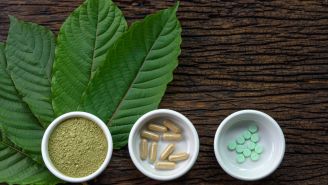Updated on December 13, 2024.
More than 22 million adults in the United States live with cataracts. To help reduce the risk of this eye condition clouding your vision as you age, eating a healthy diet is important—and a few foods could be particularly protective.
What are cataracts?
A cataract is a cloudy area on the lens of the eye. It occurs when proteins in the lens degrade. Since a clear lens is important for bending rays of light and helping us to see, the breakdown of these proteins leads to vision becoming impaired. Things might look blurry, cloudy, discolored, or distorted.
Cataracts are often age-related, and don't commonly develop before age 40. Progression is usually slow, though certain risk factors can speed it up. Eye injuries, time spent in the sun without sunglasses, smoking, diabetes, and a genetic predisposition can all raise the risk of cataracts and accelerate its progress in those who have it.
Foods for good eye health
Eating an overall healthy diet can help protect your eyes and may help lower the risk of developing cataracts. That means emphasizing fruits, vegetables, whole grains, legumes, nuts, and lean proteins like fish and poultry. It also involves limiting processed foods, saturated fats, and added sugar and salt.
Focusing on fruits and veggies may be especially important since they’re rich in antioxidants. Antioxidants are substances that help prevent or delay damage to cells in your body. Among those that are key to eye health include:
- Vitamin C, found in citrus fruits, kiwi, broccoli, and red and green peppers
- Vitamin E, found in nuts, sunflower and safflower oil, spinach, and broccoli
- Lutein and zeaxanthin, found in kale, spinach, broccoli, peas and corn
Foods rich in omega-3 fatty acids may also help protect against cataracts, not to mention heart disease, some cancers, and even dementia. These foods include cold-water fatty fish such as salmon and tuna, walnuts, flaxseed, chia seeds, soybean oil, flaxseed oil, and canola oil. Foods like eggs and orange juice are often fortified with omega-3s, as well.
Studies suggest adhering to certain diets may help a person get these nutrients. One 2023 systematic review, published in the journal Nutrients, found strong evidence that a vegetarian diet and a traditional Korean balanced diet (KBD) were among the most beneficial. Both emphasize plant-based foods and limit or avoid foods high in saturated fat. The KBD diet also prioritizes fish, as well as fermented foods like kimchi.
It’s best to get the nutrients your eyes need from what you eat. Supplements may help some people in certain cases. If you’re considering taking a supplement, talk to a healthcare provider (HCP) first.
Protect your eye health
Eating a healthy, balanced, nutrient-dense diet may help prevent or slow the development of cataracts. Taking these other steps can help, too:
- Wear sunglasses outdoors year-round. Look for lenses that block 100 percent of UV rays.
- Wear a wide-brimmed hat on sunny days.
- Limit or avoid alcohol.
- If you smoke, take steps to quit. People who smoke are two or three times more likely to develop cataracts than people who don’t smoke. Even if you already have cataracts, quitting smoking now can help slow the progression.
- Take steps to manage other health conditions. Diabetes and high blood sugar may raise your risk of developing cataracts.
Wearing special prescription eyeglasses can help correct vision issues caused by cataracts. Using brighter lights at home and limiting night driving may help, as well. If the cataracts start to affect a person’s ability to do daily tasks, surgery may be needed. Surgery involves removing cloudy lenses from the eyes and replacing them with artificial ones.
Last but not least, visit a vision care specialist regularly for screening. The American Optometric Association recommends having comprehensive eye exams every two years for people under age 65. For those ages 65 and older, or who have existing eye health or vision issues, it’s best to have an eye exam at least each year.







